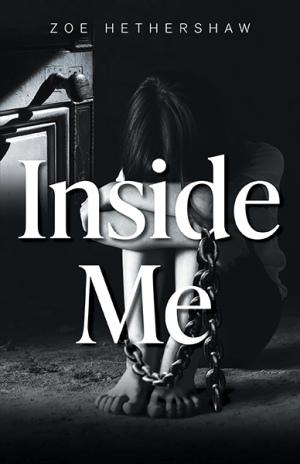Inside Me
In the inspiring novel Inside Me, a woman’s future happiness is dependent on her ability to reconcile herself to her troubled past.
Based in truth, Zoe Hethershaw’s novel Inside Me is about a father’s influence on his daughter’s healing.
When Nichole was five, her mother died in a car crash, and her father turned her over to foster care. She was abused and neglected throughout her childhood. Later, Nichole used alcohol and drugs to inoculate her pain.
While being treated for various disorders and working in a care facility, Nichole learns that her father has died. His will stipulates that she learn the truth about him by meeting people on a list he compiled. Though she is hesitant to comply, she decides to accept the challenge—and with it, her inheritance.
Much of the story is devoted to Nichole meeting the people on her father’s list; through those interactions, she prepares to meet with everyone subsequent. While she girds herself for each interaction with the refrain “let’s do this,” she also has visceral, negative responses to the task. She faints, declares that she wants a drink, and runs away. Indeed, her old habits prove hard to shake: her inner turmoil is a constant source of narrative tension. But the book’s other characters are steadier presences: the people who Nichole’s father directed her toward are often kind to her in their conversations, pushing her to be healthier and more hopeful.
Still, the secondary characters are developed with varying degrees of realism. Nichole meets her great-great-grandmother in the course of the novel, as well as Lesous, a godlike figure; their contributions are more figurative than anything else. Others function as guides for her. She realizes that much of the work that she must do is inward—though she also presses for tangible rewards, like her father’s money. There are lush flourishes in her tale, too, including a helicopter ride, entrance into decadent homes, and a walk in Vancouver’s beautiful landscapes.
The book indulges in natural imagery when it’s discussing people’s feelings, resulting in some provocative turns. It becomes somewhat fantastical in describing Nichole’s euphoria at she experiencing feelings of safety and love for the first time; these idyllic experiences are made to contrast with her violent memories to give an expanded sense of her growth. Meant to be refined, not defined, by her past, Nichole is pushed toward a victorious, if idealized, ending that emphasizes remunerations. And Nichole’s story of transformation is appended by an afterward filled with practical self-help recommendations—a reminder that this is a book driven by its message of healing, with emphasis placed on forgiveness and self-care.
In the inspiring novel Inside Me, a woman’s future happiness is dependent on her ability to reconcile herself to her troubled past.
Reviewed by
Mari Carlson
Disclosure: This article is not an endorsement, but a review. The publisher of this book provided free copies of the book and paid a small fee to have their book reviewed by a professional reviewer. Foreword Reviews and Clarion Reviews make no guarantee that the publisher will receive a positive review. Foreword Magazine, Inc. is disclosing this in accordance with the Federal Trade Commission’s 16 CFR, Part 255.

